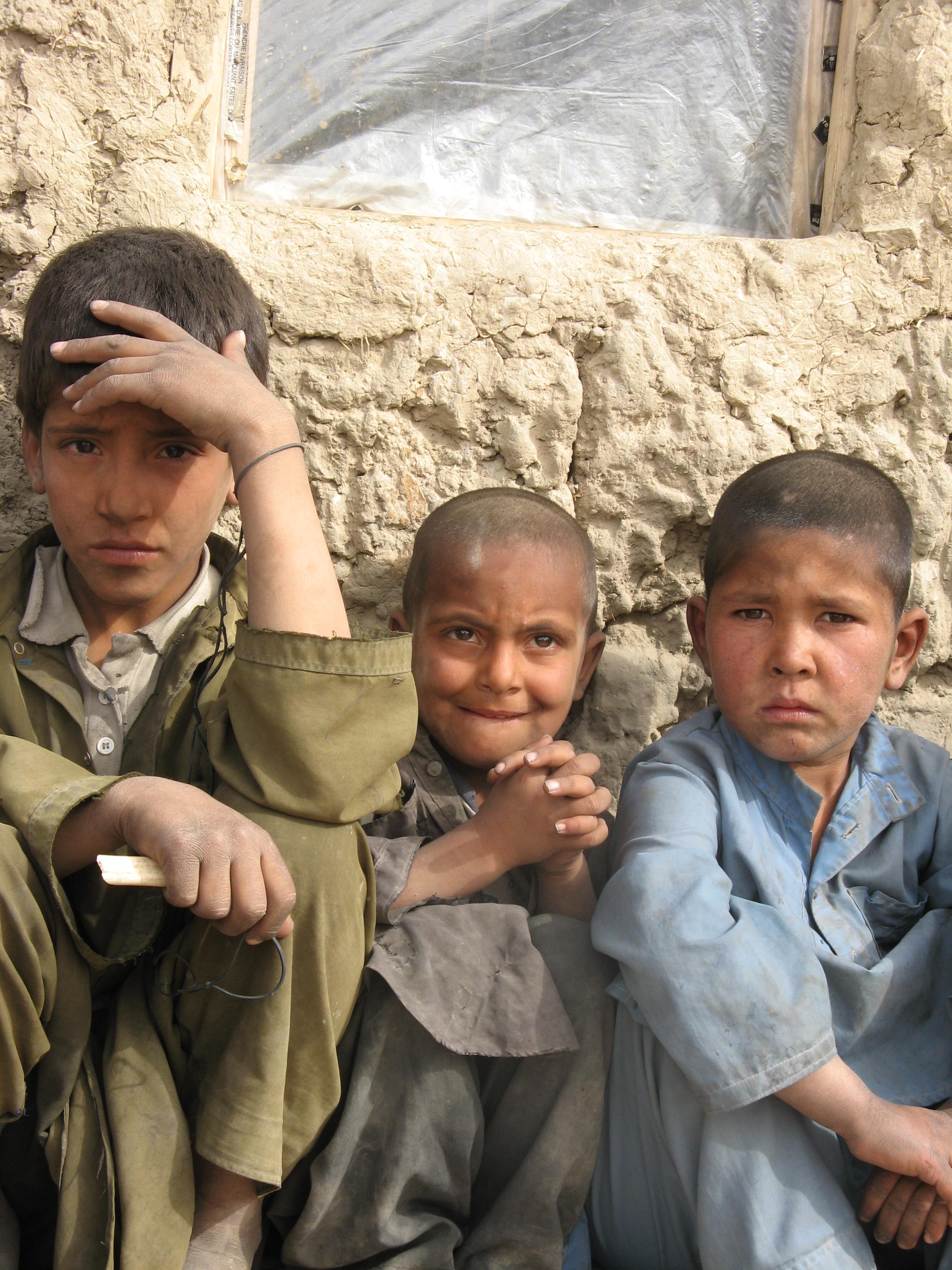Having lost everything, his family moved to the provincial capital of the same name (Farah) in late 2008 and built a mud hut on the outskirts of town.
“We have spent many cold nights, with empty stomachs and painful bodies,” Mahmood’s grandfather told IRIN, describing their post-displacement life.
Mahmood, 10, and his younger brothers and a sister have never attended school because for them food and shelter, rather than education, are the priorities.
“We have nothing to eat so how can we go to school,” he said.
The family survives on charity from local people and odd jobs Mahmood and his grandfather do in town. They have received no aid from the government or aid agencies.
“I wash cars, fetch water, carry goods and do every other kind of task, and earn 50-80 Afghanis [US$1-1.60] per-day,” he said. “My grandfather sells potatoes, onions and vegetables from a cart... we are trying to earn a crust for our family.”
“Too dirty” for school
Mahmood and his younger siblings walk for over 15 minutes to collect water in yoke buckets from an open well.
“I took my brother to a school but they did not accept him, saying his clothes, hands and face were too dirty,” Mahmood said.
Washing and personal hygiene is difficult not only due to the lack of soap and adequate water but also due to the cold for much of the year.
Moreover, the children in the family are particularly prone to infections due to their poor diet, and the poor hygiene and sanitation conditions. They cannot get safe drinking water, though they do have access to free treatment and medicine at a public hospital in Farah.
Increasing numbers of IDPs
About 1,000 displaced families are living in and around Farah, according to the UN Office for the Coordination of Humanitarian Affairs (OCHA).
Armed conflict, food insecurity and natural disasters (such as drought and floods) have been major causes of internal displacement in the country.
The UN Refugee Agency (UNHCR) estimates that over 230,000 internally displaced persons (IDPs) live in camps and makeshift settlements across the country, but the figure does not include displacements over the past 3-4 years.
“It has been impossible to accurately determine the number of people displaced by the conflict between international coalition forces and armed opposition groups since 2006, as there is little access to conflict zones,” says a report by the Norwegian Refugee Council’s internal displacement monitoring centre.
“We are concerned about the increasing numbers of IDPs,” Hafiz Nadeem, an official at the Ministry of Refugees and Returnees (MoRR), told IRIN, adding that the government had very little capacity to respond.
|
Photo: Salih/IRIN  |
| The government wants IDPs to return to their original areas but IDPs say they cannot return due to ongoing conflict, poverty and lack of socio-economic opportunities |
Over the past three years the government has halted the official aid programme to IDPs in an effort to prevent people becoming aid-dependent, and to discourage further displacements. Government policy has been backed by the UNHCR, which opposes the establishment of new IDP camps.
“Our main policy is to encourage IDPs to return to their original areas,” said Nadeem of MoRR.
However, for many IDP families, including Mahmood’s, the government’s policy is unacceptable.
“How can we return to our village when the war is going on in our area and our home is destroyed?” asked Mahmood’s grandfather, Abdul Rauf.
af/ad/at/cb
This article was produced by IRIN News while it was part of the United Nations Office for the Coordination of Humanitarian Affairs. Please send queries on copyright or liability to the UN. For more information: https://shop.un.org/rights-permissions





